To accompany your Come Follow Me study for the week of July 8-14
In addition to reading these chapters from Alma, you will enjoy watching the following related videos:
You will also enjoy the following related commentary from the Book of Mormon Institute Student Manual:
If you would like a Kahoot game related to this material which you could use for personal study or use with your family or your class, click here: https://create.kahoot.it/share/alma-23-29/9b54e2fe-e049-436d-9f23-6622571f0461 . To use it with a group, after clicking on this link, you will need to log into Kahoot, creating a free account if you have not done so previously, then click on the blue “Start” button. Some of the Kahoot questions may presuppose that the player has read through the suggested answers to the following Points to Ponder and at least has browsed the Institute student manual as well.
Points to Ponder in Alma 23-29
1. What could account for the fact that none of the Lamanite converts in 23:6 ever fell away, when all too many of the new converts among us seem to stay only for a few weeks?
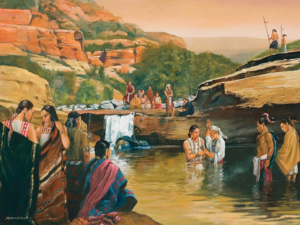
2. Why did the converted Lamanites call themselves “Anti-Nephi-Lehies”, when they were now so friendly with the Nephites? Wouldn’t the name “Pro-Nephi-Lehies” have been more fitting?
3. What is significant about the fact that only one Amalekite and no Amulonites were converted? (23:14; 24:28.) Who are the Amalekites and Amulonites of today? How successful are we in preaching to them?

4. Is 24:6 a mandate for pacifism? Were the Lamanite converts who refused to fight living a higher law than Mormon, Helaman, and Moroni, who did fight? Explain.
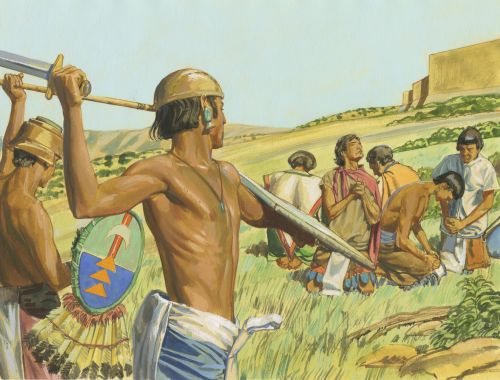
5. If, as we sometimes hear, murder is unforgivable, how could the Lamanite king “thank … God … that he hath … forgiven us of … our many sins and murders which we have committed”? (24:10)

6. What is noteworthy about what else the king says God had done for them besides merely forgiving them? (24:10) Why was that so important?
7. How does 24:19 indirectly add to the evidence that the Book of Mormon was actually written on gold plates and was not a 19th century creation?
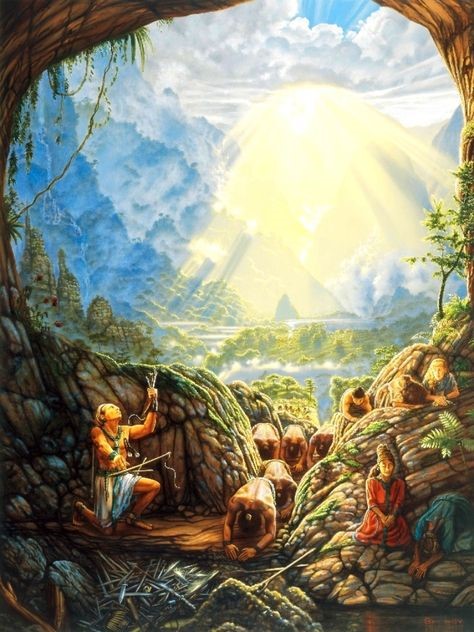
8. Why did the converted Lamanites bury their swords rather than just put them on a shelf? What applications of this principle can you suggest for our lives? (24:15-18)

9. What word in Alma 26:1-5 would you guess that Elder Neal A. Maxwell said symbolizes the temple? What does the word mean, in common English? In what way is it comparable to the temple?

10. How many references can you find in chapters 26-29 to the great joy Ammon and his brethren felt? How many different words can you point to that indicate that joy?
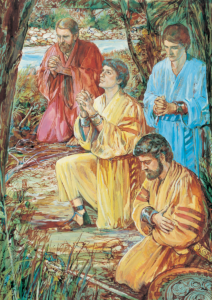
11. Have you ever been as happy as Ammon seems to be in Alma 26 and 29? Can you share some details of when, where, and why? What was the real reason Ammon was so happy?
12. Alma seems to say in 26:22 that if one is sufficiently repentant, faithful, prayerful, and diligent he should be able to bring thousands of souls into the church. What would you say to a missionary, aware of this passage, whose feelings of self‑worth were pretty low because he had not baptized large numbers and felt that therefore he was somehow lacking?

13. Doesn’t 29:4 contradict 29:3? Does the Lord give us what we truly desire, or is he displeased when we want more than he has already allotted us? How does 29:4 square with your personal experience? Has the Lord really given you what you have desired on every occasion?
14. Does anyone really “desire” death or remorse of conscience? What does Alma mean in 29:5?
15. What implications do you see in 29:8 for:
a. Missionary work today?
b. The partial validity of non‑Latter-day Saint and even non‑Christian religions?
c. The possible existence of additional yet‑to‑be‑discovered scripture?
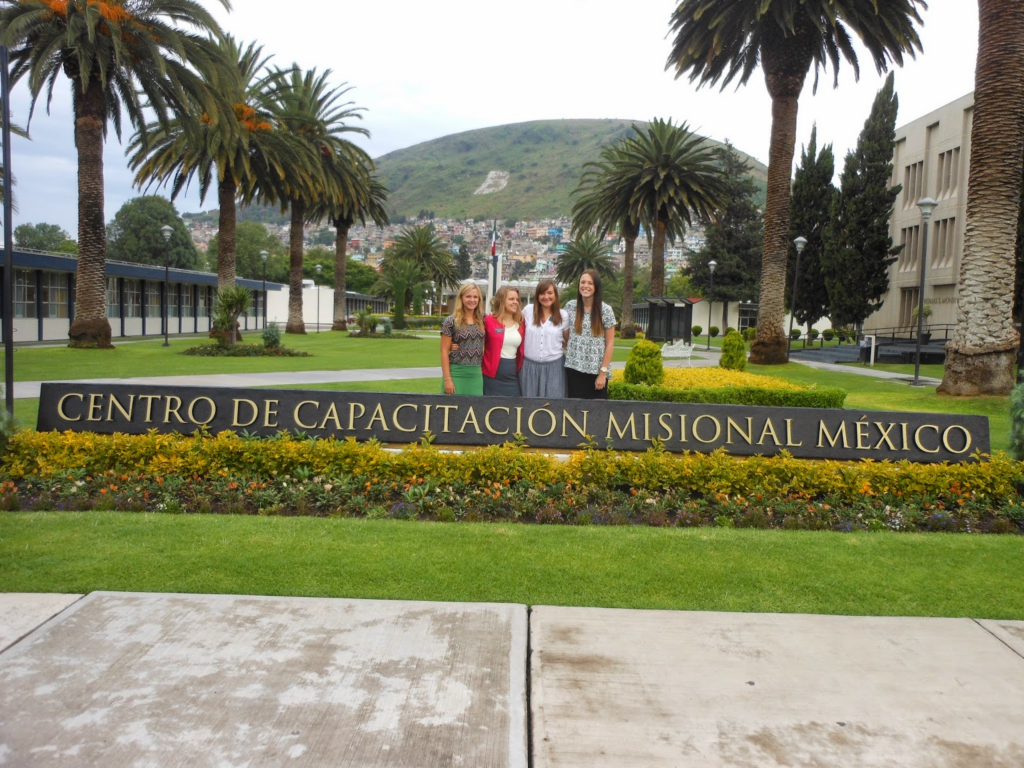
16. What phrase in Alma 29 suggests Alma didn’t have the pride and competitiveness that plagues our generation? How did Alma avoid feeling bad that his friends had had so many more baptisms than he had? When is competition good in our society and when is it bad?
Possible Answers to Points to Ponder in Alma 23-29
1. What could account for the fact that none of the Lamanite converts in 23:6 ever fell away, when all too many of the new converts among us seem to stay only for a few weeks?
The depth of their conversion must have something to do with it. These converts were risking their lives by accepting the gospel, so none of them joined because of simple peer pressure or because Ammon and his companions were good looking. When one makes serious sacrifices for the gospel, it tends to solidify his conversion. It certainly did for these several thousand Lamanites! In our day we may ask too little of some of our converts, not expecting them to read the entire Book of Mormon, for example, or just telling them to do the best they can with tithing.
2. Why did the converted Lamanites call themselves “Anti-Nephi-Lehies”, when they were now so friendly with the Nephites? Wouldn’t the name “Pro-Nephi-Lehies” have been more fitting?
See https://archive.bookofmormoncentral.org/content/knowhy-131-why-did-converted-lamanites-call-themselves-anti-nephi-lehies-alma-2317 for a plausible explanation.
3. What is significant about the fact that only one Amalekite and no Amulonites were converted? (23:14; 24:28.) Who are the Amalekites and Amulonites of today? How successful are we in preaching to them?
These were former Nephites, who had once been believers. When one leaves the faith, the Spirit leaves him even more destitute than he had been before he joined. (See Alma 24:30.) Similarly today, we have very little success in bringing back those who leave the Church, turn their backs on it, and fight against it, though we should never cease trying. Many of those who have been excommunicated have simply fallen into transgression, and they are much easier to reclaim than those who have apostatized.
4. Is 24:6 a mandate for pacifism? Were the Lamanite converts who refused to fight living a higher law than Mormon, Helaman, and Moroni, who did fight? Explain.
No. This was a special case. A reformed alcoholic must avoid even a drop of liquor if he doesn’t want to fall back into full-fledged alcoholism. Similarly, these Lamanite converts, who had once enjoyed killing for the sake of killing, felt they dared not risk taking up the sword again even in self-defense. They feared they could again acquire the same appetite for bloodshed they had once had and thus lose their souls. But they certainly supported the war effort, as indicated by their willingly sending their sons off to fight. And the Book of Mormon makes clear that the Nephites were not simply permitted to defend themselves but had a God-given responsibility not to let the Lamanites take away their lives, their families, or their liberty.
5. If, as we sometimes hear, murder is unforgivable, how could the Lamanite king “thank … God … that he hath … forgiven us of … our many sins and murders which we have committed”? (24:10)
As D&C 42:18 makes clear, intentional murder is not forgivable for Church members, but less enlightened and less responsible non-members may potentially be forgiven. It is not easy today, as it was not easy for these converted Lamanites. The baptism of a murderer today requires special permission from the First Presidency.
6. What is noteworthy about what else the king says God had done for them besides merely forgiving them? (24:10) Why was that so important?
God had also taken away the guilt from their hearts. In other words, they were no longer tormented by their past but could rejoice in the power of the atonement to forgive even such serious sins as they had previously committed. Without that feeling, even those forgiven by God could constantly focus on their own supposed unworthiness and not approach the Lord in prayer in expectation of getting the guidance and direction He would want to give them.
7. How does 24:19 indirectly add to the evidence that the Book of Mormon was actually written on gold plates and was not a 19th century creation?
If Mormon had been writing on a computer, he would simply have corrected his initial statement that “they buried their weapons of peace,” which of course makes no sense. But since it was extraordinarily difficult to erase on gold plates, his only option was to continue, “or they buried the weapons of war, for peace.” Similarly, if Joseph Smith had been making the story up, he could have crossed out the original phrase, or told Oliver Cowdery to cross it out. The fact that it is still there lends credence to their testimony that the phrase is not modern but was written thusly on the gold plates that Mormon prepared.
8. Why did the converted Lamanites bury their swords rather than just put them on a shelf? What applications of this principle can you suggest for our lives? (24:15-18)
This was obviously an effort to protect themselves from the temptation of picking their weapons up again without adequate provocation, as well as a symbol of their wanting to distance themselves from their past as much as possible. Parallels for us would be, for example, for a smoker to throw away his cigarettes, not simply put them in the drawer, and for drinkers to avoid going to parties or other environments where liquor might be served.
9. What word in Alma 26:1-5 would you guess that Elder Neal A. Maxwell said symbolizes the temple? What does the word mean, in common English? In what way is it comparable to the temple?
“Garners.” More commonly we call them granaries—buildings where grain is stored. The scriptures often speak of missionary work as symbolically harvesting grain, so getting converts into the temple is like getting the grain into the granary, where it will be safe. Studies have shown that getting new converts to the temple to do baptisms for the dead is one of the best guarantors of their remaining active, and getting them there to be sealed makes it even surer.
10. How many references can you find in chapters 26-29 to the great joy Ammon and his brethren felt? How many different words can you point to that indicate that joy?
I count 48 words or phrases in chapter 26 such as “joy,” “rejoice,” “marvelous light,” “sing to his praise,” “blessing,” “dearly beloved,” etc., with at least 24 more such references in chapters 27-29.
11. Have you ever been as happy as Ammon seems to be in Alma 26 and 29? Can you share some details of when, where, and why? What was the real reason Ammon was so happy?
Most of us probably have never been so happy we couldn’t even stand up, as Ammon was. But most of us have felt the same kind, if not intensity, of feeling. The Lord promised such feelings to those who perform missionary service, either formally or informally, when he said:”If it so be that you should labor all your days in crying repentance unto this people, and bring, save it be one soul unto me, how great shall be your joy with him in the kingdom of my Father! And now, if your joy will be great with one soul that you have brought unto me into the kingdom of my Father, how great will be your joy if you should bring many souls unto me!” (D&C 18:15 – 16)
Usually such joy will come from service to others rather than from being served. The real or immediate reason for Ammon’s happiness (or ours) is the reception of the Holy Ghost, which comes from righteous living. Though it usually involves service, it can also result from scripture reading or from determining to turn one’s heart and life over to the Lord (with a commitment for future service), as was the case at Alma’s conversion. (Alma 36:20.)
12. Alma seems to say in 26:22 that if one is sufficiently repentant, faithful, prayerful, and diligent he should be able to bring thousands of souls into the church. What would you say to a missionary, aware of this passage, whose feelings of self‑worth were pretty low because he had not baptized large numbers and felt that therefore he was somehow lacking?
The phrase “unto such” need not be taken as a promise to each individual but an indication that collectively such repentant and faithful missionaries will bring thousands to repentance. Noah and Abinadi were certainly faithful, but neither brought thousands into the fold, unless one counts the offspring and converts of their own few converts.
13. Doesn’t 29:4 contradict 29:3? Does the Lord give us what we truly desire, or is he displeased when we want more than he has already allotted us? How does 29:4 square with your personal experience? Has the Lord really given you what you have desired on every occasion?
There is a sense, of course, in which each passage is correct. If we truly desire something enough, ask for it, and work to achieve it, the Lord promises to give it to us, if it is right. On the other hand, if it is not right, we need to be content with what the Lord knows is best for us. If there was any “sin” in Alma’s wish in 29:1-2, it could have been that in part he was thinking of the honor and glory associated with being such a powerful missionary as he wanted to be, but if his desire were only for the conversion of souls, without seeking credit for himself, there would be no sin involved. As verse 6 indicates, we all need to be content with the assignments the Lord has given us, not seeking “higher” callings, but there is nothing wrong with preparing oneself to be ready for such additional assignments as the Lord may care to give.
14. Does anyone really “desire” death or remorse of conscience? What does Alma mean in 29:5?
One is free to choose his actions, but he is not free to change the natural consequences of those actions. One may not directly desire death or remorse of conscience, but if he desires to live a life of sin, then indirectly he is “desiring” both death and remorse, which will surely be the results.
15. What implications do you see in 29:8 for
a. Missionary work today?
The gospel is taught today in dozens of languages, with the aid of excellent language instruction in the various MTC’s around the world, with the intent that everyone hear it in his own tongue. And the goal is to call missionaries and local leaders from each culture, so that none are dependent perpetually on those from the US or elsewhere.
b. The partial validity of non‑Latter-day Saint and even non‑Christian religions?
Church leaders have taught that the Lord inspired the founders and leaders of non-Latter-day Saint and even non-Christian religions to give a partial truth to their people, to raise them above where they would otherwise be and prepare them eventually to receive the fullness of the gospel.
c. The possible existence of additional yet‑to‑be‑discovered scripture?
Those to whom the Lord has spoken have been impressed with the need to write down the divine message, and if the Lord has inspired men in “all nations,” it would seem logical that there are written volumes yet to come forth, just as the Book of Mormon was hidden from public knowledge for centuries before being revealed in the 1800’s.
16. What phrase in Alma 29 suggests Alma didn’t have the pride and competitiveness that plagues our generation? How did Alma avoid feeling bad that his friends had had so many more baptisms than he had? When is competition good in our society and when is it bad?
In 29:14 Alma indicates that his joy was even more full because of the success of his brethren. His interest was the salvation of souls, not credit for his own role in the process. Competition is evidently acceptable in sports, provided it remains fun and is not taken too seriously, as the Church has countenanced inter-ward basketball, for example. Competition with oneself, to improve on one’s previous performance, is always in order. But competition to get more riches or fame than another is usually a manifestation of pride, which leads to contention, even potentially conflict, and a loss of the Spirit.
